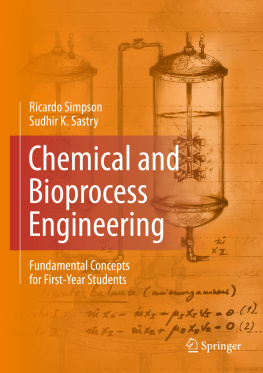1.1 What Is an Engineer?
Engineering is defined by the Accreditation Board for Engineering and Technology (ABET) as the creative application of scientific principles to design or develop structures, machines, apparatus, or manufacturing processes, or works utilizing them singly or in combination; or to construct or operate the same with full cognizance of their design; or to forecast their behavior under specific operating conditions; all as respects an intended function, economics of operation and safety to life and property.
Engineering, in some form, has existed as long as humankind has been building devices for specific purposes. Examples of early forms of engineering include the development of the wheel, the use of fire, and the development of tools from bronze and iron. However, the term engineering is of more recent origin, and the application of scientific principles had to await the development of science and scientific methods as we know them today.
While science has been vital and important in the development of engineering, it does not account for everything. Engineers often encounter situations where scientific information is unavailable or simply missing. In such situations, human creativity, resourcefulness, and experience can play a key role; this is the art of engineering. At the same time, we must emphasize that engineering science provides a critical base of knowledge; without it, we might reinvent the wheel! Today, developments in computer hardware and software have enabled engineers to predict outcomes in situations where measurements are impossible, enabling them to accomplish safe design in blind or difficult situations. Consider the situation faced by a pilot who must land a plane in heavy fog with limited visibility. It is here that the genius of design engineers, with their ability to design automatic controls enabling instrument landings, comes into play. Another situation is the landing of exploration vehicles on Mars: this is happening even as this book goes to press, yet humans have never been on the surface of Mars. How can we engineer devices and systems that respond to our commands from Earth and do our bidding at extreme distances? It is the interplay of art and science under the constraints of economics, safety, and other relevant considerations that makes engineering the amazing and exciting profession that it is. We welcome you to join and enjoy a satisfying career in engineering.
1.3 What Are Process, Chemical, Bioprocess, and Biochemical Engineers?
We use the term process engineers to refer to a broad class of engineers that includes chemical engineers. However, the term process engineering is likely less familiar to most laypeople than the better-known chemical engineering , and hence we have chosen chemical engineering for this books title. Process engineers typically are involved in the design, operation, control, and optimization of chemical, physical, and biological processes.
A number of definitional statements exist for chemical engineering. The one adopted by the Institution of Chemical Engineers (UK) in 1924 stated essentially that a chemical engineer is a professional experienced in the design, construction and operation of plant and works in which matter undergoes a change of state and composition .
Historically, chemical engineering has been at the heart of major parts of the chemical, petroleum, pharmaceutical, and electronics industries. However, more recently, many chemical engineering and other departments have diversified to encompass biochemical (or biomolecular) engineering.
Biochemical engineering involves the design, construction, and operation of unit processes that involve biological organisms or molecules and is involved in the biotechnology, pharmaceutical, food, environmental, and waste treatment industries. Many similar names (and flavors) exist, including biomolecular (focused on the manipulation of molecules) and biomedical (focused on medical applications) engineering. Nevertheless, a common theme is the central focus on biology as a core discipline. As the worlds critical resources will require management and stewardship in the twenty-first century, the discipline of biochemical engineering will take on increasing importance.
While chemical and biochemical engineering are well recognized and represented in department and journal names, we would like to focus specifically on processes, or process engineering, which encompasses a vast class of operations that include chemical and biochemical engineering. Bioprocess engineering, which may be considered a subset of process engineering, deals with the design and development of equipment and processes for the manufacture of products such as food, feed, pharmaceuticals, nutraceuticals, chemicals, and polymers and paper from biological materials.
1.4 History
1.4.1 Why Is History Important?
History is important because by knowing our past we can better understand our present and, thus, better predict the future. It has been said that man is the only animal that trips twice over the same stone; thus knowing history can help us avoid this characteristically human trait.
We shall take a brief look at history to understand how engineering was born within human society and thus facilitate our understanding, especially for young people just starting their studies. Moreover, we will start discussing, briefly, prehistory, because we may well discover that we were born engineers!






